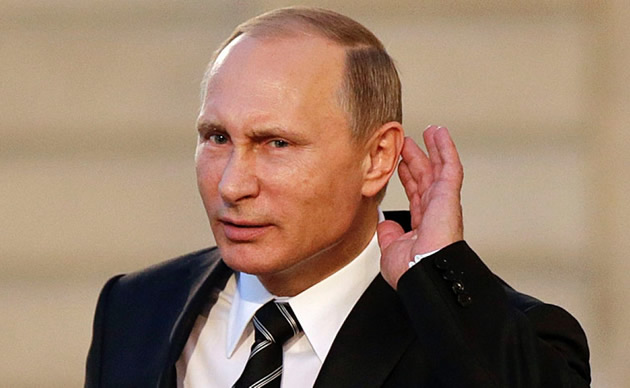As tension escalates following Russia’s recent presidential election, a clear divergence in international reactions has emerged, underscoring the complexities of global diplomacy.
Both the United Kingdom and France have voiced strong opposition to the re-election of Vladimir Putin, citing longstanding grievances and concerns over Russia’s actions on the international stage, among other reasons.
Meanwhile, in a move reflecting their respective strategic interests, the presidents of India and China have congratulated Putin on his electoral victory.
This act highlights the intricate web of alliances and geopolitical calculations shaping diplomatic responses to this pivotal event.
President Vladimir Putin won a fifth term in the Kremlin with 87.28 per cent of votes, after a three-day ballot in which he ran against no real challengers.
“I want to thank all of you and all citizens of the country for your support and this trust,” Putin said Monday morning in a news conference at his campaign headquarters in Moscow hours after polls closed.
“No matter who or how much they want to intimidate us, no matter who or how much they want to suppress us, our will, our consciousness — no one has ever succeeded in anything like this in history. It has not worked now and will not work in the future. Never,” he added.
– France, UK oppose victory –
France said on Monday the election that extended Russian President Vladimir Putin’s rule for another six years took place amid “repression”, and hailed the “many” Russians who demonstrated their opposition.
“The conditions for a free, pluralist, and democratic election were not met once again,” the French foreign ministry said.
Paris also said it regretted that Russia had not invited election observers from the Organisation for Security and Cooperation in Europe (OSCE).
Meanwhile, Britain’s Foreign Minister, David Cameron, on Sunday, dismissed early results from Russia indicating that Putin had been comfortably re-elected.
“The polls have closed in Russia, following the illegal holding of elections on Ukrainian territory, a lack of choice for voters and no independent OSCE monitoring,” he posted on X account.
“This is not what free and fair elections look like,” he also rejected the polls on Monday.
– China, India congratulate Putin –
Key Russian ally, China, on Monday congratulated President Vladimir Putin on his election victory.
“China expresses its congratulations on this,” foreign ministry spokesman, Lin Jian, said when asked about the poll at a regular press conference.
“We firmly believe that under the strategic guidance of President Xi Jinping and President Putin, China-Russia relations will continue to move forward,” Lin said, noting that this year marks the 75th anniversary of the establishment of diplomatic relations between the countries.
In a separate report, Indian Prime Minister, Narendra Modi, said on Monday in a congratulatory message to re-elected Russian President, Vladimir Putin, he looked forward to boosting ties to develop their “special” relationship.
“Look forward to working together to further strengthen the time-tested Special and Privileged Strategic Partnership between India and Russia in the years to come,” Modi wrote on social media platform X.
Meanwhile, a social analyst and political scientist at the Obafemi Awolowo University, Mr Lekan Baruwa, told our correspondent in a phone conversation that the position of the two Western nations and two Asian nations are their diplomatic positions
He said, “UK and France may be critical of Vladimir Putin’s re-election due to longstanding tensions and conflicts with Russia, particularly regarding issues such as the annexation of Crimea, alleged interference in elections, and human rights abuses.
“Both countries have historically been vocal about their concerns regarding Russia’s actions on the international stage. Therefore, it wouldn’t be surprising if they expressed scepticism or disapproval of Putin’s re-election.
“India and China may have congratulated Vladimir Putin on his re-election for several reasons. India, for example, has a history of strong defence and energy ties with Russia, and both countries often align in international forums on issues such as multipolarity and opposition to Western dominance.
“China similarly values its relationship with Russia, particularly as both countries share concerns about US dominance and seek to counterbalance Western influence.”
Baruwa noted that all nations have solid and valid reasons for supporting or criticising Putin’s re-election.
“Therefore, India and China might see congratulating Putin as a gesture to maintain and strengthen these important partnerships.
“However, it’s essential to note that diplomatic statements can be nuanced and influenced by various factors, including domestic politics, economic considerations, and regional dynamics.
“Therefore, the actual reactions of these countries might vary, and additional context would be necessary to provide a comprehensive analysis.”
– US reacts –
In a separate report late Monday, AFP reports that the United States denounced Russia’s election as “undemocratic” and said it will not congratulate President Vladimir Putin, who was declared the winner by a sweeping margin.
Asked about Putin’s reelection, State Department spokesman Vedant Patel responded sarcastically, “I was on the edge of my seat. It was such a nail-biter.”
“This was an incredibly undemocratic process,” Patel told reporters.
